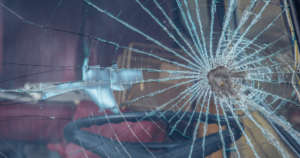 In a personal injury claim, courts and insurance companies do not look to the party who is allegedly at fault to prove they are not. It is up to the victim to establish another party is at fault for his or her injury, and the injury was the result of the other party’s negligent behavior.
In a personal injury claim, courts and insurance companies do not look to the party who is allegedly at fault to prove they are not. It is up to the victim to establish another party is at fault for his or her injury, and the injury was the result of the other party’s negligent behavior.
When you learn more about the legal theory of negligence, you may think the concept is relatively straightforward. However, gathering evidence and building a strong case can become complicated. You must also remember the insurance company and at-fault party will be working against you to avoid liability.
Discussing the situation with a licensed attorney is an important step. At Pfeifer, Morgan & Stesiak we have a proven track record of helping personal injury victims recover compensation. There are no upfront fees and our South Bend personal injury lawyers do not get paid unless you receive compensation.
Proving a Personal Injury Claim
A lot of what people think about lawsuits and legal claims is shaped by what we see on TV and in movies. While TV shows and movies may be misleading in some ways, they often make clear it is the victim who must prove a case, while the other side defends itself. The burden of proof is on the victim.
This is also true in civil trials and personal injury claims. It is up to you as the victim of a personal injury to prove someone else is at fault for your injuries. That means you need to establish the four elements of negligence were present when your accident and injuries occurred.
Negligence
Negligence refers to a failure to uphold a duty of care one person owed to another in a situation. For example, drivers must obey traffic laws as not doing so would breach a duty of care.
If you or your lawyer can establish a duty of care was breached, you must also link this to the injury you suffered. Another way of thinking about it is this: you would not have suffered an injury without the actions of the other party.
Finally, negligence cannot be established unless the injury you suffered caused damages, like medical expenses and lost wages.
Proving negligence will likely require various pieces of evidence, such as the police report, testimony from eyewitnesses, pictures from the scene, medical records, medical bills, and potentially testimony from expert witnesses.
Preponderance of Evidence
Another idea popular culture has promoted about lawsuits and legal matters is guilt beyond a reasonable doubt. However, that is the standard of proof for criminal cases. In civil cases, the plaintiff must prove the case by the preponderance of evidence – it is more likely than not the other party is at fault. This is a lower standard than guilt beyond a reasonable doubt.
Essentially, if the jury thinks the chances are 50 percent or greater your version of events is inaccurate, they are not supposed to rule in your favor. All the defendant needs to do is present enough evidence to contradict or cast doubt on your version of events and he or she may avoid liability.
Affirmative Defenses
However, when defendants present affirmative defenses, they must prove them to be more than likely true. An affirmative defense is one that provides additional facts to defeat a plaintiff’s claim.
For example, if you were injured in a gym or while playing sports, the other party may claim you agreed to participate, and your injuries arose in the normal course of the sport or normal course of using the gym. If the defendant can prove this claim, he or she may not be held liable, even if you prove your claim of negligence.
Unsure if You Have a Valid Case? Call for Help
Pfeifer, Morgan & Stesiak is here to help you after an injury. We can determine if you may have a valid claim for compensation and guide you through the legal process if you do.
Our goal is to obtain maximum compensation for your damages, including medical expenses, pain and suffering, property damage, and other expenses. We have seen how important compensation can be as victims look to move forward.
Pfeifer, Morgan & Stesiak. No upfront fees. Phone: (574) 444-0741.












